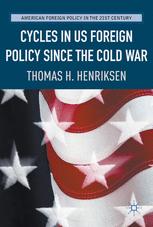

Most ebook files are in PDF format, so you can easily read them using various software such as Foxit Reader or directly on the Google Chrome browser.
Some ebook files are released by publishers in other formats such as .awz, .mobi, .epub, .fb2, etc. You may need to install specific software to read these formats on mobile/PC, such as Calibre.
Please read the tutorial at this link: https://ebookbell.com/faq
We offer FREE conversion to the popular formats you request; however, this may take some time. Therefore, right after payment, please email us, and we will try to provide the service as quickly as possible.
For some exceptional file formats or broken links (if any), please refrain from opening any disputes. Instead, email us first, and we will try to assist within a maximum of 6 hours.
EbookBell Team

4.7
66 reviewsThis book describes how American international policy alternates between engagement and disengagement cycles in world affairs. These cycles provide a unique way to understand, assess, and describe fluctuations in America’s involvement or non-involvement overseas. In addition to its basic thesis, the book presents a fair-minded account of four presidents’ foreign policies in the post-Cold War period: George H.W. Bush, Bill Clinton, George W. Bush, and Barack Obama. It suggests recurring sources of cyclical change, along with implications for the future. An engaged or involved foreign policy entails the use of military power and diplomatic pressure against other powers to secure American ends. A disengaged on noninvolved policy relies on normal economic and political interaction with other states, which seeks to disassociation from entanglements.